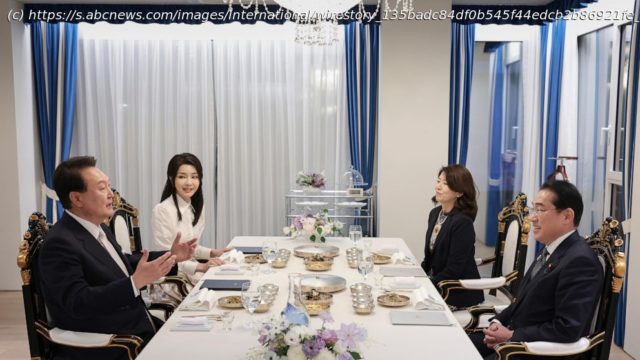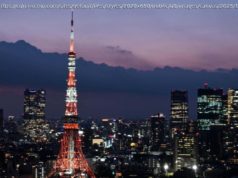Array
The leaders of South Korea and Japan are to meet Sunday for their second summit in less than two months, as they push to mend long-running historical grievances and boost ties in the face of North Korea’s nuclear program and other regional challenges.
Japanese Prime Minister Fumio Kishida arrived in South Korea on Sunday for a two-day visit, which reciprocates a mid-March trip to Tokyo by South Korean President Yoon Suk Yeol. It was the first exchange of visits between the leaders of the Asian neighbors in 12 years.
Ahead of his summit with Yoon, Kishida and his wife, Yuko Kishida, visited the national cemetery in Seoul, where they burned incense and paid a silent tribute before a memorial. Buried or honored in the cemetery are mostly Korean War dead, but include Korean independence fighters during Japan’s 1910-45 colonial rule. Kishida was the first Japanese leader to visit the place in 12 years.
“I hope to have an open-hearted exchange of views with President Yoon based on our relationship of trust,” Kishida told reporters before his departure to Seoul. “Since March, there have been various levels of communication in areas including finance and defense, and I plan to further develop this ongoing trend.”
South Korean and Japanese officials said Yoon and Kishida will discuss North Korea’s nuclear program, South Korean-Japanese economic security and overall relations, and other unspecified international issues.
In their summit in March, Yoon and Kishida agreed to resume leadership-level visits and other talks. In recent weeks, the two countries have also withdrawn the economic retaliatory steps they had earlier taken against each other in previous years when their history row rekindled.
Ties between Seoul and Tokyo have long suffered on-again, off-again setbacks over issues stemming from the Japanese colonial occupation.
The most recent sticking point in their ties was 2018 court rulings in South Korea that ordered two Japanese companies to financially compensate some of their aging former Korean employees for colonial-era forced labor.






